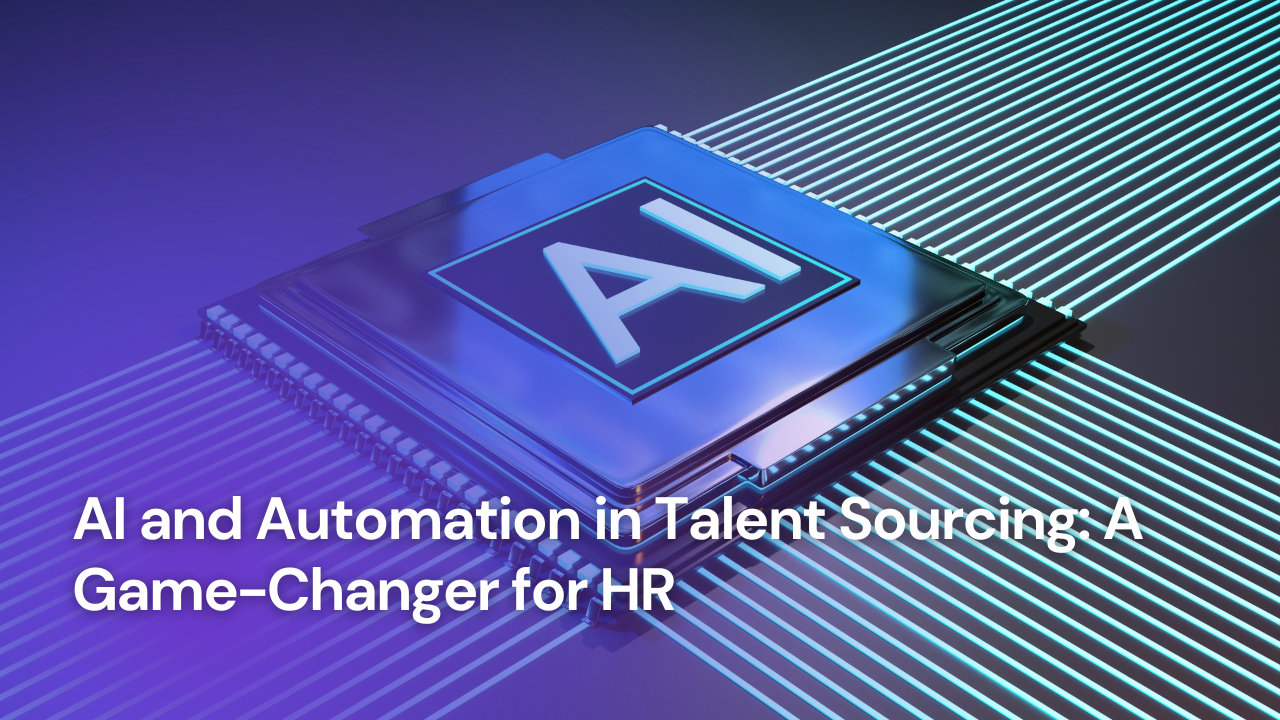In the contemporary landscape of Human Resources, the integration of Artificial Intelligence (AI) and automation has significantly reshaped the traditional methods of talent sourcing. The HR industry has witnessed a paradigm shift, leveraging these technological advancements to streamline and optimize the recruitment process. With the growing demands for skilled professionals and the competitive job market, AI and automation have emerged as transformative tools in identifying, attracting, and retaining top talent. This article explores the profound impact of AI and automation in talent sourcing, unveiling the game-changing strategies that have redefined HR practices.
The Evolution of Talent Sourcing
Traditionally, talent sourcing involved exhaustive manual processes, from screening resumes to conducting interviews, often resulting in time-consuming procedures that led to inefficiencies and missed opportunities. However, the advent of AI and automation has revolutionized this landscape, offering innovative solutions that expedite and enhance the entire recruitment cycle.
AI-Powered Candidate Screening
AI-driven tools and algorithms have the capability to analyze and screen resumes, assessing candidate qualifications, experience, and skill sets far more efficiently than manual methods. These systems use Natural Language Processing (NLP) and Machine Learning to identify keywords, match job descriptions, and rank candidates, significantly reducing the time and effort required in the initial screening phase.
According to a survey conducted by Deloitte, 33% of organizations use AI for screening and analyzing candidate resumes, resulting in a 42% decrease in the time taken to fill a position and a 24% reduction in turnover rates within the first year.
Automated Sourcing and Outreach
Automation tools enable HR professionals to reach out to potential candidates at scale. From personalized emails to social media engagement, automated systems facilitate consistent and targeted communication, thereby improving the chances of connecting with the right candidates. This not only expedites the recruitment process but also enhances the candidate experience, portraying the company as technologically savvy and responsive.
LinkedIn’s research reveals that 76% of candidates are open to new job opportunities, but only 61% of them are actively looking. Automated sourcing allows companies to tap into this passive candidate pool, increasing the chances of securing high-quality talent.
Enhancing Candidate Experience and Engagement
AI and automation not only benefit employers but also revolutionize the experience for candidates. Chatbots and AI-powered communication tools provide instant responses, answer queries, and guide applicants through the application process. This real-time interaction significantly enhances engagement, provides a personalized touch, and ensures a positive experience, even for candidates who may not ultimately be selected for a position.
Research by IBM highlights that candidates who are satisfied with their application experience are 38% more likely to accept a job offer. AI-driven engagement tools contribute to a 56% increase in candidate satisfaction throughout the hiring process.
Predictive Analytics for Talent Acquisition
The application of AI extends beyond just sourcing and initial screening. Predictive analytics leverages historical and current data to forecast future hiring needs, identifying trends, and making data-driven decisions. By analyzing parameters such as employee turnover, market trends, and skill demands, HR departments can proactively plan and strategize for future talent requirements.
A study by PwC suggests that organizations leveraging predictive analytics in their talent acquisition strategies are 2.5 times more likely to outperform competitors.
Mitigating Bias in Recruitment
One of the most significant challenges in traditional recruitment has been bias, whether unconscious or explicit. AI and automation, when programmed correctly, have the potential to mitigate bias in the hiring process. These systems operate on data and algorithms, reducing human intervention and, consequently, the risk of human bias in decision-making.
Research by Harvard Business Review found that AI can reduce gender bias in recruitment by 15% and significantly improve diversity in the workplace, creating a fairer and more inclusive hiring environment.
The Future of AI and Automation in HR
As technology continues to advance, the role of AI and automation in talent sourcing will evolve. Areas like candidate relationship management, skill development analysis, and even virtual reality simulations for assessing candidate capabilities are likely to be integrated into HR practices.
However, despite the remarkable benefits, challenges such as data privacy, ethical use of AI, and potential job displacement need to be addressed as AI and automation become more pervasive in HR.
Conclusion
AI and automation have undeniably transformed talent sourcing in HR, optimizing processes, enhancing candidate experiences, and enabling data-driven decision-making. The integration of these technologies has proven to be a game-changer, allowing HR professionals to focus more on strategic aspects of recruitment while reducing time and resources spent on routine tasks.
The future of talent sourcing undoubtedly lies in the innovative applications of AI and automation, continually reshaping and redefining the HR landscape. To remain competitive and attract top talent, organizations must embrace these technological advancements, leveraging them to create a more efficient, unbiased, and engaging recruitment process.
As AI continues to evolve, so too will its impact on talent sourcing, enabling HR professionals to redefine their roles as strategic partners within their organizations, ensuring the best talent is sourced, engaged, and retained for continued success.





